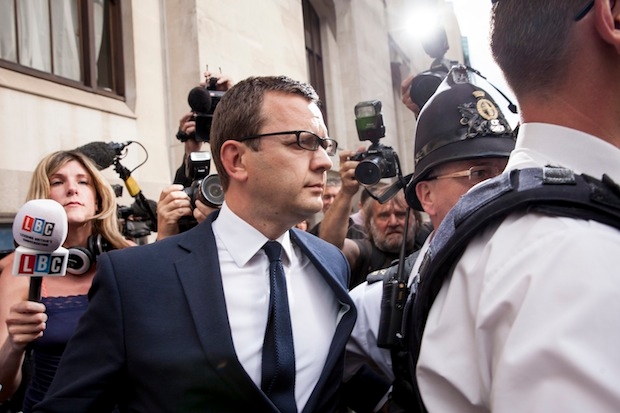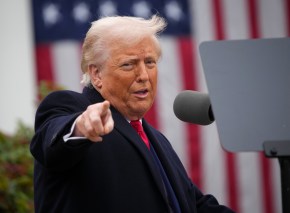We have not heard much from Hugh Grant this week. Nor from Max Mosley, Steve Coogan or any of the other bizarre array of celebrities and moguls who wanted to use the phone-acking scandal as an excuse to end British press freedom. For some time, they argued that the press had become a law unto itself, and it was time for politicians to regulate it. We have just seen why such a draconian step is not necessary.
Hacking is already against the law, which is why £100 million has just been spent trying former executives of Rupert Murdoch’s News International. The woman who used to run the company, Rebekah Brooks, has been acquitted of all charges — after being investigated and scrutinised for three years solidly. Andy Coulson, a former News of the World editor, was convicted. Hardly a sign of a country where, as the Hacked Off campaigners have suggested, newspapers operate above the law.
David Cameron has said he is ‘very sorry’ for hiring Coulson as his spin doctor, and no wonder. Had he not brought him into 10 Downing Street, it’s unlikely that there would have been such interest in reopening the hacking case. It was investigative journalism that exposed the wrongdoing — the free press revealing flaws in other parts of the free press. Like MPs’ expenses, phone hacking was a scam justified in the belief that everyone else was doing it.
It is now clear to everyone that Cameron, himself a former PR man, ought to have asked more questions before hiring Coulson. But at the time, in the summer of 2007, Cameron was desperate. It looked as if a general election was about to be called, which probably would have ended in the Conservatives’ defeat and his resignation as party leader.








Comments
Join the debate for just £1 a month
Be part of the conversation with other Spectator readers by getting your first three months for £3.
UNLOCK ACCESS Just £1 a monthAlready a subscriber? Log in